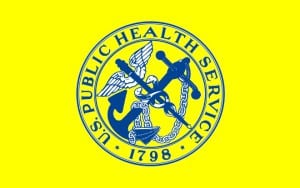 As fears of an Ebola epidemic rise in the U.S., politicians and journalists have been asking who exactly is in charge of fighting the disease here and communicating key messages. The recent infection of a nurse in Texas who treated Ebola victim Thomas Duncan has only intensified these charged questions.
As fears of an Ebola epidemic rise in the U.S., politicians and journalists have been asking who exactly is in charge of fighting the disease here and communicating key messages. The recent infection of a nurse in Texas who treated Ebola victim Thomas Duncan has only intensified these charged questions.
Choosing a point person for all inquiries in a crisis is a central tenet of crisis communications. Whether or not this person has the technical know-how or the power to alleviate a crisis, having a comforting and informed human face and voice leading a crisis management effort meets a basic human need to know that somebody is in charge. In the case of Ebola, many assume that the U.S. surgeon general would play this role. Unfortunately, there hasn't been an appointed and approved surgeon general since Regina Benjamin resigned in June 2013. President Obama's nominee has not received congressional approval.
CBS News has reported that the role of the surgeon general has been weakened over the years, with health experts saying that the directors of the Centers for Disease Control and Prevention (CDC) and National Institutes of Health (NIH) have the scientific background and authority to lead the Ebola response and communications efforts. Yet the "Nation's Doctor" role played by the U.S. surgeon general—even if it's a largely symbolic one—looms large in the face of a terrifying communicable disease like Ebola. There is an acting surgeon general, but as CBS reported, he has been in the background.
In a crisis, symbolism has its own power—power that should be activated.
Jana Telfer, communication officer for the CDC, will speak at PR News' Oct. 30 webinar "Your Next Brand Crisis: How to Create a Communications Plan for It." She'll be joined by Shana Harris of Warschawski and Heather Dopson of Social Media Explorer.
Follow Steve Goldstein: @SGoldsteinAI
